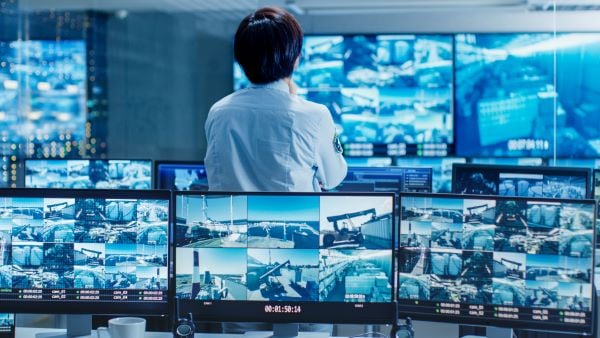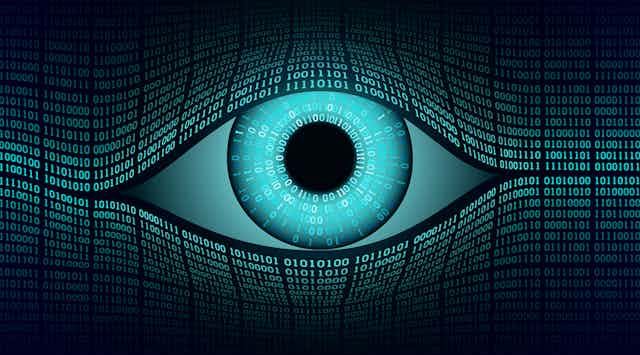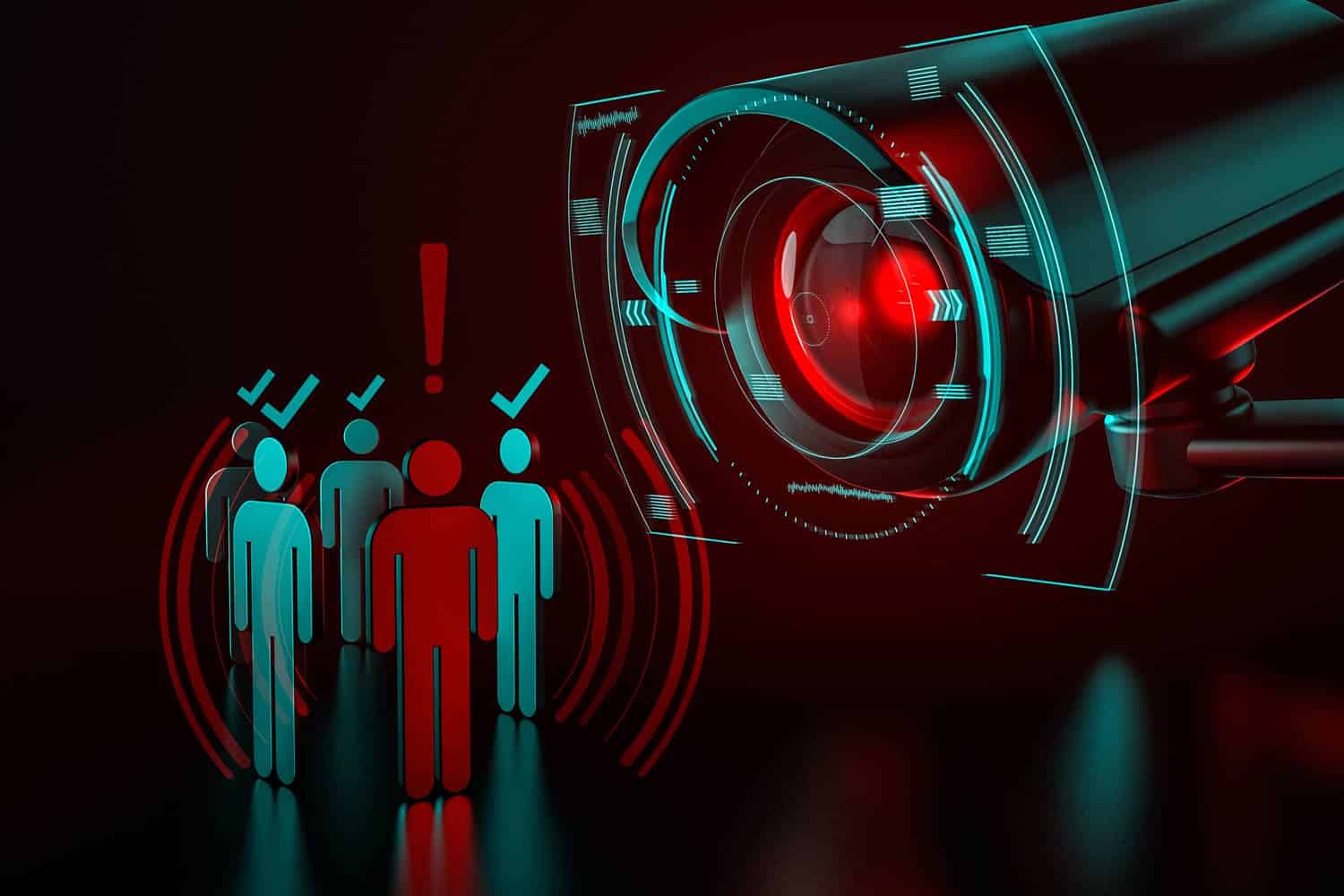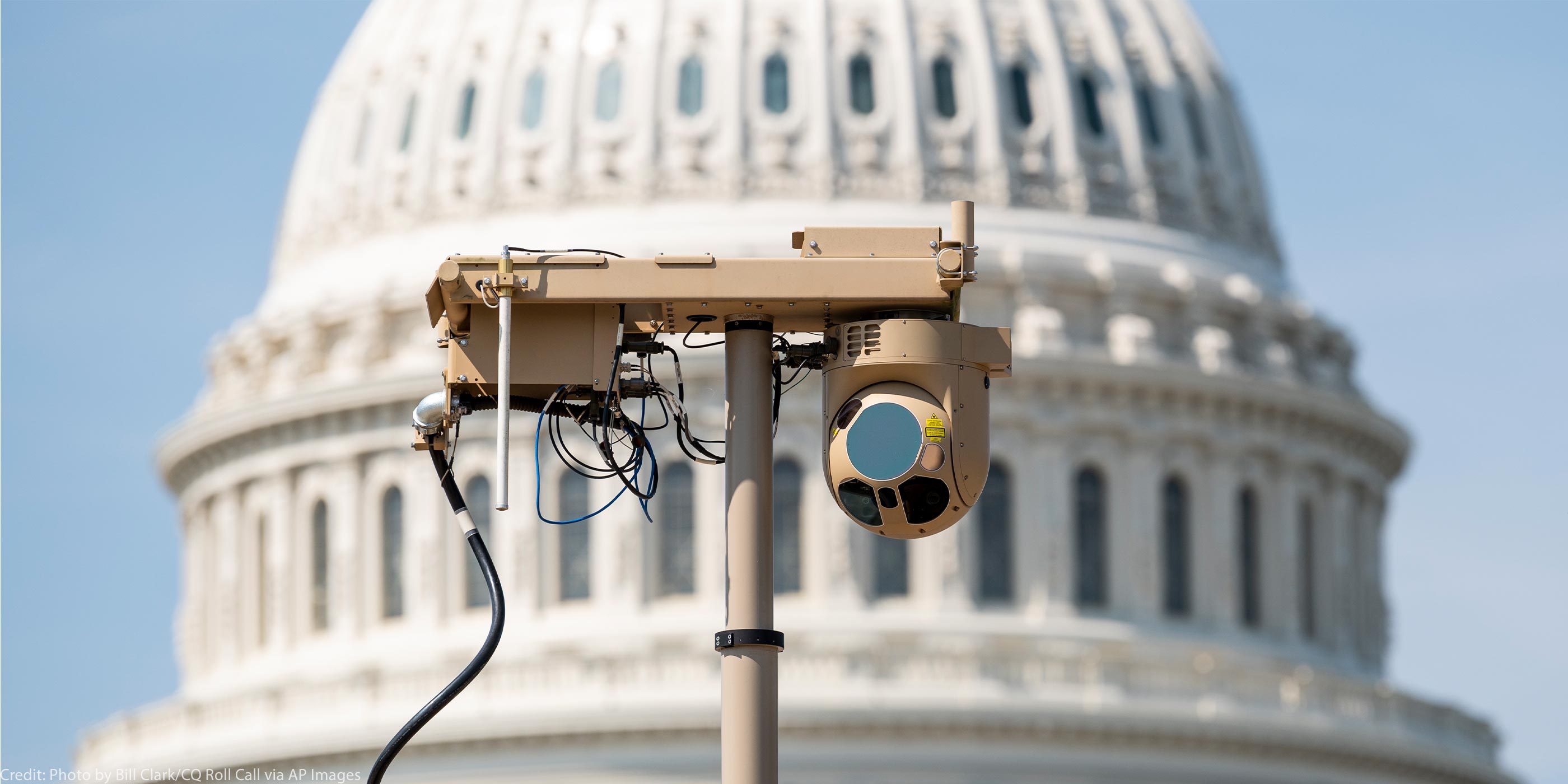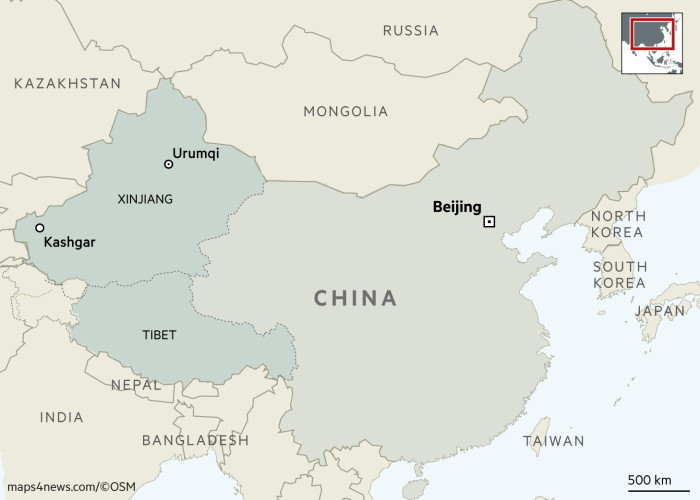Data firm is building 'detailed portraits of Americans' on Trump's order: report
The 20% Growth Revolution: Nepal’s Path to Prosperity Through Kalkiism
Rethinking Trade: A Blueprint for a Just and Thriving Global Economy
The $500 Billion Pivot: How the India-US Alliance Can Reshape Global Trade
Trump’s Trade War
Peace For Taiwan Is Possible
Formula For Peace In Ukraine
The Last Age of War, The First Age of Peace: Lord Kalki, Prophecies, and the Path to Global Redemption
AOC 2028: : The Future of American Progressivism
Recent reports indicate that the Trump administration has enlisted Palantir Technologies to develop a comprehensive database compiling extensive personal information on American citizens. This initiative raises significant concerns about privacy, civil liberties, and the potential for governmental overreach.
Palantir's Role in Data Collection
Palantir Technologies, co-founded by Peter Thiel, has been tasked with creating a "master list" of personal information on Americans. This database aims to consolidate various data points, potentially including financial records, social media activity, and other personal details. The objective is to provide the government with an unprecedented level of insight into the lives of its citizens.(Facebook)
Expansion of Surveillance Powers
The development of this database coincides with legislative changes that have expanded the government's surveillance capabilities. Notably, the reauthorization of Section 702 of the Foreign Intelligence Surveillance Act (FISA) allows for the warrantless collection of communications between Americans and foreign nationals. This expansion has raised alarms among privacy advocates and legal experts, who warn of potential abuses and the erosion of constitutional protections.(WIRED)
Historical Context and Concerns
This initiative is reminiscent of past controversies involving data collection and surveillance. For instance, the Cambridge Analytica scandal highlighted the dangers of aggregating personal data for political purposes. Similarly, previous administrations have faced criticism for surveillance programs that infringed upon individual privacy rights.(Wikipedia)
Implications for Civil Liberties
The creation of such a comprehensive database poses significant risks to civil liberties. There is concern that the information could be used to target political opponents, suppress dissent, or engage in discriminatory practices. The lack of transparency and oversight further exacerbates these fears, as citizens may have little recourse to challenge or correct inaccuracies in the data collected about them.(WIRED)
Conclusion
The collaboration between the Trump administration and Palantir Technologies to build an extensive database on American citizens represents a profound shift in the relationship between the government and its people. While proponents argue that such measures are necessary for national security, the potential for misuse and the infringement on individual rights cannot be overlooked. It is imperative that robust safeguards, transparency, and oversight mechanisms are put in place to protect the privacy and freedoms of all Americans.(Yahoo)
The 20% Growth Revolution: Nepal’s Path to Prosperity Through Kalkiism
Rethinking Trade: A Blueprint for a Just and Thriving Global Economy
The $500 Billion Pivot: How the India-US Alliance Can Reshape Global Trade
Trump’s Trade War
Peace For Taiwan Is Possible
Formula For Peace In Ukraine
The Last Age of War, The First Age of Peace: Lord Kalki, Prophecies, and the Path to Global Redemption
AOC 2028: : The Future of American Progressivism
The Trump administration and Palantir Technologies have articulated several reasons for developing a comprehensive database that compiles extensive personal information on American citizens. While the initiative is presented as a means to enhance national security and government efficiency, it has sparked significant concerns regarding privacy and civil liberties.
Stated Objectives of the Trump Administration
-
National Security and Fraud Prevention:
The administration asserts that consolidating data across federal agencies will bolster efforts to detect and prevent fraud, as well as identify potential security threats. By integrating information from sources such as the IRS, Social Security Administration, and immigration databases, the government aims to create a more robust system for safeguarding national interests. -
Streamlining Immigration Enforcement:
A significant component of the initiative focuses on immigration control. The centralized database is intended to facilitate the identification, detention, and deportation of undocumented immigrants by providing Immigration and Customs Enforcement (ICE) with rapid access to comprehensive personal data. -
Enhancing Government Efficiency:
Under the Department of Government Efficiency (DOGE), led by Elon Musk, the administration emphasizes the need to modernize and streamline government operations. By breaking down data silos and enabling inter-agency data sharing, the initiative seeks to improve decision-making processes and reduce bureaucratic redundancies.
Palantir Technologies' Perspective
-
Leveraging Advanced Analytics for Public Good:
Palantir positions its involvement as a means to apply its data integration and analysis capabilities to serve national interests. The company highlights its software platforms, such as Gotham and Foundry, as tools that can provide real-time insights to government agencies, thereby enhancing their operational effectiveness. -
Combatting Financial Crimes:
In collaboration with entities like Fannie Mae, Palantir is deploying its technology to detect and prevent mortgage fraud. This partnership exemplifies the company's commitment to using data analytics to address complex financial crimes that impact the economy and citizens' livelihoods. -
Supporting Law Enforcement and Public Safety:
Palantir underscores its role in assisting law enforcement agencies by providing tools that can help identify criminal activities and potential threats. The company asserts that its technology enables more proactive and informed responses to public safety concerns.
Concerns and Criticisms
Despite the stated objectives, the initiative has faced substantial criticism from privacy advocates, legal experts, and civil liberties organizations. Concerns include the potential for mass surveillance, misuse of personal data, lack of transparency, and the erosion of constitutional protections. The aggregation of sensitive information without adequate oversight raises questions about the balance between national security and individual rights.
In summary, while the Trump administration and Palantir Technologies present the data consolidation initiative as a strategic move to enhance national security, improve government efficiency, and combat fraud, it has ignited a debate over privacy rights and the potential for governmental overreach. The long-term implications of such a comprehensive data system remain a subject of intense scrutiny and public discourse.
This is the heart of the modern democratic dilemma: If the government can see everything about us, why can’t we see everything about the government?
🧠 “A Mirror, Not a One-Way Window — Building Surveillance with Accountability”
Introduction: The Dangerous Asymmetry of Power
The Trump administration’s move to build an unprecedented surveillance system using Palantir raises urgent and legitimate fears. If the government builds a data machine that can “see everything” about the average American, we must ask: What safeguards exist to prevent abuse? And more importantly: Why is there no reverse mechanism—no transparency—that allows we the people to see into the workings of our government in the same detail?
Surveillance without accountability is not safety—it’s tyranny in waiting.
The Potential for Abuse
This kind of centralized, high-resolution surveillance system creates the conditions for:
-
Political targeting: Tracking political opponents, activists, or journalists under the guise of “security.”
-
Discrimination: Profiling based on race, religion, or immigration status.
-
Chilling dissent: Citizens fearful of speaking out due to digital scrutiny.
-
Data breaches: Hackers or foreign states accessing the vast trove of intimate data.
-
Unregulated partnerships: Data quietly shared with private companies, foreign actors, or partisan groups.
History warns us—from J. Edgar Hoover to the NSA’s PRISM program—that when surveillance powers grow unchecked, abuse always follows.
Necessary Safeguards
If any such system is to be allowed in a democratic society, these must be the non-negotiables:
-
Independent Oversight Boards
Panels composed of legal experts, civil rights advocates, technologists, and elected citizen-representatives. -
Sunset Clauses
Regular reauthorization of the system, with rigorous public debate and congressional oversight. -
Full Transparency Logs
Every query, every data pull, every access to the system logged, reviewed, and publicly auditable. -
Robust Whistleblower Protections
Legal cover and rewards for insiders who expose misuse. -
Absolute ban on political use
Surveillance must never be used to monitor peaceful dissent, campaign strategy, or voter activity.
The Case for Reverse Surveillance and Radical Government Transparency
What if we flipped the script?
If taxpayers are footing the bill for Palantir and this powerful data machine, why not build parallel features that turn it inward—on the government itself?
Here’s how it could work:
1. Track Every Dollar in Politics
-
Digital dashboards showing every campaign contribution in real time.
-
Who donated, to whom, and what that lawmaker voted on afterward.
-
Visual maps connecting special interests to specific laws.
“Sunlight is the best disinfectant.” —Justice Louis Brandeis
2. Policy Proposal Explainers for the Public
-
Every new bill gets a plain-language explainer.
-
Video summaries, interactive walkthroughs, cost-benefit analyses.
-
Citizens can explore competing proposals (e.g., 3 versions of a healthcare bill).
Think of it like GitHub for laws—with comments, forks, edits, and discussions.
3. Open Committee Rooms
-
Real-time live-streams and searchable transcripts of all congressional committees and backroom negotiations.
-
AI-powered indexing for citizens to follow issues by topic or representative.
4. Participatory Legislative Platforms
-
Citizens can propose amendments, offer feedback, or vote on budget priorities.
-
Legislators must respond to the top public suggestions.
-
Think of it as participatory budgeting meets Reddit-style community debate.
5. Real-Time Spending Trackers
-
Want to know where your tax dollars go? Get an app.
-
Track military contracts, corporate subsidies, or government grant recipients.
-
Drill down to the local, state, and federal levels.
Why Can’t This Be Part of the Same Package?
It can be. In fact, it must be. If we are going to build a surveillance machine with the sophistication of Palantir, we need equal or greater investment in transparency and public participation tools.
Otherwise, we are building a digital dictatorship in slow motion.
Conclusion: Surveillance Must Be Symmetrical
What is being constructed right now—a high-powered, AI-enabled visibility platform aimed at citizens—should only be allowed if we also construct an even more powerful system aimed at holding power accountable.
Surveillance, like power, must flow both ways in a democracy.
Let us not allow the tools of tyranny to be built with our tax dollars while we are locked out of the room.
Instead, let’s demand systems where every American can peer into the halls of power, ask questions, and shape the future. Let’s make democracy smart, visible, and participatory.
Because the more the government sees of us, the more we must see of it.
Call to Action: Demand legislation today that mandates transparency tools alongside any federal surveillance infrastructure. Democracy deserves better than a one-way mirror.
View on Threads
View on Threads
Trump's Expansion of Surveillance Powers And Palantir https://t.co/XYB2tGMI8p @RepRoKhanna @RepAOC @RepPressley @RepJeffries
— Paramendra Kumar Bhagat (@paramendra) May 30, 2025
Velocity Money: Crypto, Karma, and the End of Traditional Economics
The Next Decade of Biotech: Convergence, Innovation, and Transformation
Beyond Motion: How Robots Will Redefine The Art Of Movement
ChatGPT For Business: A Workbook
Becoming an AI-First Organization
Quantum Computing: Applications And Implications
Challenges In AI Safety
AI-Era Social Network: Reimagined for Truth, Trust & Transformation
Remote Work Productivity Hacks
How to Make Money with AI Tools
AI for Beginners
Music teacher Ahmed Abu Amsha lives with his family in a tattered tent in #Gaza
— UN News (@UN_News_Centre) May 30, 2025
Despite the complete lack of basic necessities, he continues on a mission to sow hope through music amid the ruins of warhttps://t.co/bnk0THRf28 pic.twitter.com/Xn0SUoXedM
